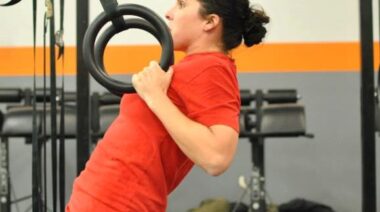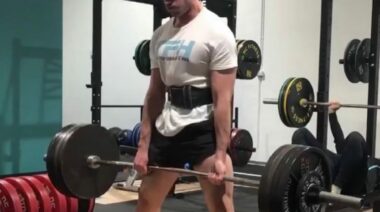Having a leg up on the competition will define an athlete’s college career. A group of researchers in a recently published Journal of Strength and Conditioning Research study wondered how prepared incoming freshmen actually are.
There are many reasons to have an athlete prepared for college sports. Of course, better performance in tryouts, practice, and games is perhaps the most obvious reason. In fact, the researchers pointed out that the increased stress from greater participation in athletics, coupled by a complete change in academics, relationships, and being away from home, can be difficult for many athletes to cope with. So it behooves them to be as prepared as possible.
Stronger and more mobile athletes also have a reduced risk of injury. College sports will undoubtedly be more intense and include a greater degree of competition and more rigorous preparation than high school sports. Each of these factors can result in an increased risk of small or major injuries, and that risk can be mitigated by better preparation.
The researchers sent a survey to 195 Division I strength and conditioning coaches. 57 coaches completed the survey. The questions were varied. The first section had to do with the coaches, their experience levels, and the number of athletes they had worked with. The remaining questions had to do with the athletes, how prepared they were, and if there was a difference between male and females. Finally, the researchers asked if high school level coaches needed to be certified.
The results revealed technique was one of the major areas lacking in the incoming freshmen. Compound movements, especially ones with a high technical demand such as the Olympic lifts, were not up to par in many college freshmen. Sprinting and agility form would be a helpful component for technical development as well. For the physical aspects of athleticism that commonly needed work, lower body strength, core strength, and flexibility topped the list. These areas would be easy to develop prior to going to college.
Lastly, the Division I college coaches suggested higher level coaching at the high school level. While it’s not always practical for a high school to have a dedicated strength and conditioning coach, coaches may benefit from receiving education on strength and conditioning practices to better prepare their athletes.
The results of a study like this can help youth athletes define how to prepare for college sports, both during their high school years and in the summer leading up to college. Ultimately, the results of this study suggested incoming freshmen tend to need some work. However, with this advice we have a good starting point to getting them on track for a healthy and successful athletic career.
References:
1. Susan Wade, et. al., “How Prepared Are College Freshmen Athletes for the Rigors of College Strength and Conditioning? A Survey of College Strength and Conditioning Coaches,” Journal of Strength and Conditioning Research, DOI: 10.1519/JSC.0000000000000473.
Photo courtesy of Shutterstock.






